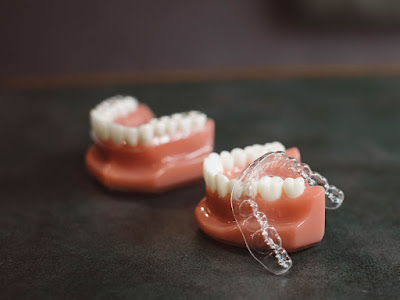💪The Healing Power of a Smile: Can Aligners Boost Your Emotional Well-Being?👀
Introduction💭
💨A smile is more than just a facial expression—it’s a powerful force that influences emotions, health, and human connections. Studies show that smiling can lower stress, elevate mood, and even strengthen the immune system. But what if you feel self-conscious about your teeth? Crooked or misaligned teeth can take a toll on confidence, affecting both mental health and social interactions.
💨With modern advancements in dentistry, clear aligners have revolutionized orthodontic treatment, offering a discreet and comfortable solution. But can they do more than just straighten teeth? Can aligners actually contribute to emotional well-being? Let’s explore the science behind smiling, its therapeutic benefits, and how aligners can enhance confidence and mental health.
🔥The Science Behind Smiling and Emotional Well-Being
Did you know that smiling isn’t just a response to happiness but a creator of it? Here’s how:
Releases Feel-Good Chemicals – Smiling triggers the brain to release endorphins, dopamine, and serotonin, which are natural mood boosters and stress reducers.
Lowers Stress Levels – A smile reduces cortisol, the hormone responsible for stress and anxiety.
Strengthens Social Bonds – A confident smile makes social interactions smoother, increasing feelings of belonging and acceptance.
Boosts Immunity – Research has shown that frequent smiling can improve immune response, helping the body fight illnesses more effectively.
Despite these benefits, not everyone smiles freely. Dental imperfections often cause people to suppress their smiles, leading to lower self-esteem and missed social opportunities.
🔥The Psychological Impact of Dental Appearance on Mental Health
While smiling enhances well-being, feeling insecure about your teeth can have the opposite effect. Studies indicate that dental appearance is directly linked to self-esteem, anxiety levels, and overall mental health.
Social Anxiety & Low Confidence – A study by the American Association of Orthodontists found that over 75% of people feel self-conscious about their teeth, with many avoiding smiling in public or in photos.
Negative Self-Perception – Dental imperfections can reinforce negative self-talk, leading to low self-worth.
Hesitation in Social & Professional Settings – Individuals with misaligned teeth may feel reluctant to engage in conversations, interviews, or presentations due to fear of judgment.
This is where aligners come into play—not just as a cosmetic fix, but as a tool for boosting confidence and overall mental well-being.
🔥How Aligners Contribute to Emotional Well-Being
Clear aligners, such as MySmartAligner, offer a comfortable and discreet way to correct dental alignment. But their benefits go beyond aesthetics. Here’s how they can positively impact mental health:
Enhanced Confidence – A straighter smile leads to a more positive self-image, making people feel more at ease in social and professional settings.
Reduction in Social Anxiety – Aligners help remove the self-consciousness that comes with dental misalignment, enabling people to smile and speak freely.
Encouragement to Smile More – As treatment progresses, individuals feel more comfortable showing their teeth, naturally benefiting from the emotional perks of smiling.
A Positive Feedback Loop – When people see improvements in their smile, their self-esteem improves, reinforcing the habit of smiling more frequently.
Better Mental Health Perception – A 2023 study on orthodontic patients revealed that those who completed aligner treatments reported higher self-esteem and lower anxiety levels compared to those who did not undergo treatment.
🔥Frequently Asked Questions About Smiling, Therapy, and Aligners
💫1. Can smiling really improve mental health?
- Yes! Scientific studies have shown that smiling activates neural pathways associated with happiness and reduces stress hormones, leading to a more positive mindset.
💫2. How do clear aligners impact self-esteem?
- Aligners offer a discreet and convenient way to fix misaligned teeth. As teeth straighten, people gain confidence and feel more comfortable smiling in public.
💫3. Are there psychological benefits to aligners compared to traditional braces?
- Absolutely! Unlike traditional braces, aligners are nearly invisible and removable, allowing individuals to maintain their normal lifestyle without feeling self-conscious.
💫4. How long does it take for aligners to boost confidence?
- Many users notice a change in their confidence within a few months as they start seeing improvements in their teeth alignment.
💫5. Can aligners be considered a form of therapy?
- While aligners are primarily a dental treatment, their impact on confidence, self-esteem, and social interactions can indirectly contribute to emotional healing and personal growth.
🔥The Role of Smiling in Therapy and Healing
Smiling isn’t just a social gesture—it’s a recognized tool in psychological therapy:
Cognitive Behavioral Therapy (CBT): Therapists encourage smiling to help patients reframe negative thoughts and develop a more positive outlook.
Mindfulness & Meditation: Smiling during meditation promotes relaxation and enhances emotional clarity.
Laughter Therapy: Smiling and laughter release stress-reducing hormones, helping individuals cope with anxiety and depression.
By addressing dental concerns with aligners, individuals can participate in these therapeutic practices with newfound confidence.
Conclusion💬
💨A smile is one of the most powerful tools for emotional and physical well-being, yet many people hide theirs due to dental insecurities. Clear aligners provide a discreet, comfortable way to achieve a confident smile while also contributing to better mental health and overall happiness.
💨If you've been holding back your smile due to dental imperfections, aligners could be the key to unlocking new levels of confidence and emotional well-being. Investing in your smile is investing in your happiness—because when you smile more, you live more.




Comments
Post a Comment